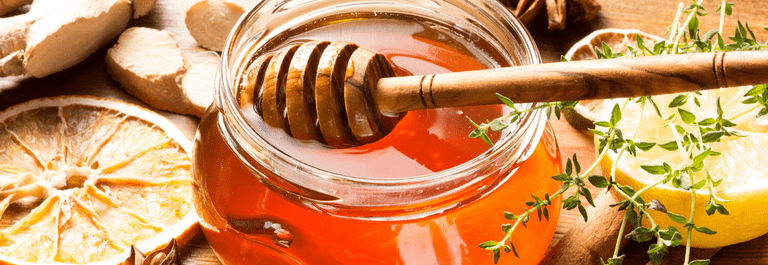Honey has been used since ancient times to help heal wounds. It aids in healing the skin, from minor scrapes and cuts, to more painful rashes and burns. Something you might not know, is that it's also super effective to use on your pesky cold sores. Cold sores, a common type of herpes, can be recurring and difficult to treat without the use of prescription creams, but luckily the use of honey can help speed up your recovery time.
In this blog post, you’ll find everything you need to know about honey and cold sores, including:
- How do I know if I have a cold sore?
- The difference between manuka honey and regular honey
- How to effectively use honey for herpes
Read on to learn how to manage cold sores naturally with the right type of honey and treatment.
How do I know if I Have a Cold Sore?
Cold sores are most likely to show up around your mouth and lips, however, you can also get them on your nose or cheeks. They usually start with a tingly, burning or itchy feeling. Around 12-24 hours later, a blister forms and the area becomes red, swollen and painful. After the blister breaks, a scab forms that might crack or bleed.
How do Cold Sores Spread?
Cold sores are caused by the Herpes Simplex Virus (HSV). This virus is extremely contagious and is spread through close contact like kissing, or sharing utensils or towels. After you've been infected with the virus it may lie dormant and cause another outbreak in the same place as before.
This recurrence could be triggered by:
- Viral infection
- Fatigue or stress
- Hormonal changes
- Injury to the skin
Manuka Honey vs. Regular Honey
Manuka honey is a highly effective natural treatment for cold sores, but what is the difference between regular honey and manuka honey?
Manuka honey is native to New Zealand and refers to the honey that comes from a specific plant. Manuka honey has 1000x more methylglyoxal than regular honey, the ingredient responsible for antibacterial effects. This makes Manuka honey the obvious choice for wound care. In addition to its antibacterial effects, manuka honey has powerful antimicrobial properties inhibiting the growth of fungus and mold.
Regular honey can be sourced from many different flowers. It does not have as potent or powerful antibacterial or antimicrobial properties as manuka honey, however it is still effective in treating many wounds.
Herpes and Honey
Research has proven that manuka honey is just as effective as other topical treatments for treating cold sores, due to its powerful antibacterial properties. Here are some ways you can try using honey for cold sores:
Apply it as an Ointment:
Apply manuka honey generously to cold sores to reap its wound healing, antibacterial capabilities. Manuka honey is also very moisturizing, which will help with dryness caused by cold sores.
Use Products that Contain Manuka Honey:
If you would prefer not to apply it straight to your cold sore, there are many natural products you can use with manuka honey in them to heal your cold sore.
We recommend this Organic Manuka Skin Soothing Cream made with manuka honey and manuka oil. This buttery cream not only has antibacterial and antimicrobial properties, but works to repair damaged skin barriers with its nourishing ingredients. This product is also extremely effective in treating other conditions such as eczema and psoriasis, so it is safe to use if you are dealing with those conditions alongside your cold sore.
Start Using Honey to Help Heal Your Cold Sores
If you’re ready to start treating your cold sores naturally, use these simple tricks to benefit from the healing power of manuka honey.










